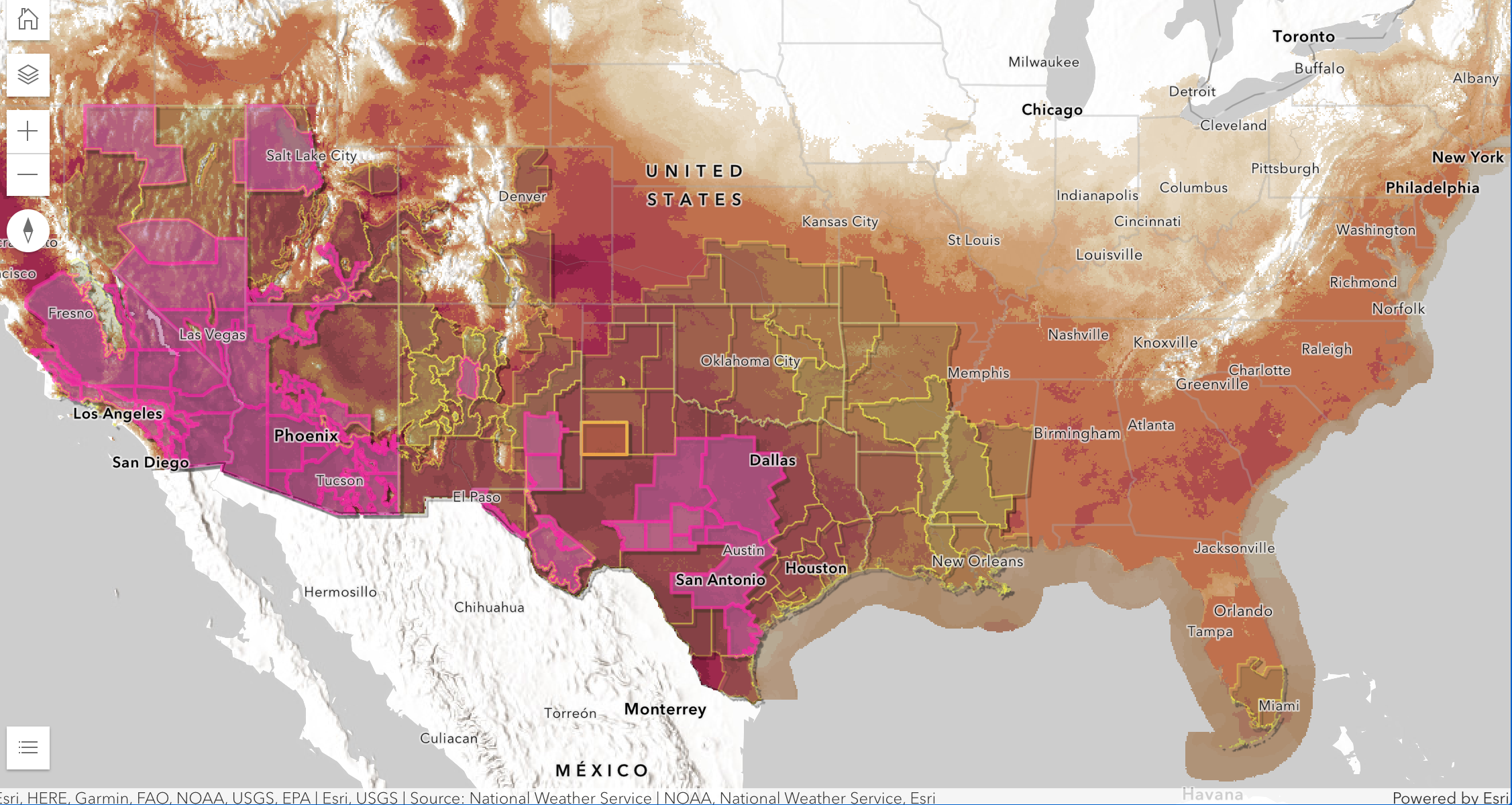Death Valley nears record high temperature as heatwaves sweep the world
More than 100 million people were under heat alerts in the US on Monday
Your support helps us to tell the story
From reproductive rights to climate change to Big Tech, The Independent is on the ground when the story is developing. Whether it's investigating the financials of Elon Musk's pro-Trump PAC or producing our latest documentary, 'The A Word', which shines a light on the American women fighting for reproductive rights, we know how important it is to parse out the facts from the messaging.
At such a critical moment in US history, we need reporters on the ground. Your donation allows us to keep sending journalists to speak to both sides of the story.
The Independent is trusted by Americans across the entire political spectrum. And unlike many other quality news outlets, we choose not to lock Americans out of our reporting and analysis with paywalls. We believe quality journalism should be available to everyone, paid for by those who can afford it.
Your support makes all the difference.Death Valley hit 128 degrees Fahrenheit (53.3C) on Sunday – a searing high even for a country buckling under a wave of prolonged, triple-digit temperatures from coast to coast.
The hottest temperature ever recorded on Earth was 134F (56.7C) in July 1913 at Furnace Creek inside the park, Randy Ceverny of the World Meteorological Organization told AP, the body recognized as keeper of world records.
Temperatures at or above 130F (54.4C) have only been recorded on Earth a handful of times, mostly in Death Valley National Park which runs along the California-Nevada border. The digital display at Furnace Creek Visitor Center gave an unofficial reading of 130F (54.4C) on Sunday.
Across the US, other regions were hitting lesser, but still dangerous, extremes. Temperatures were in the 110Fs in Phoenix, Arizona, where they have remained for the past three weeks. Las Vegas, Nevada and California’s Central Valley were facing similar extremes.
More than 100 million people were under heat alerts in the US on Monday as forecasters warned that the severe heatwave will continue throughout the Southwest until at least the weekend after toppling record after record this month.
All time heat records could be approached, or reached, in the San Joaquin Valley, Mojave Desert and Great Basin regions. Phoenix is likely to register its hottest week on record, the National Weather Service (NWS) reported.
From Monday, dangerous heat was also building in the southeast and along the Gulf Coast with heat index readings of 110F through Friday.
Public officials warned people in these areas to limit their time outdoors due to the potentially fatal consequences of such high temperatures. Extreme heat is the deadliest climate consequence, killing more Americans than all other disasters combined.
Residents were advised to turn on air conditioning, hydrate and not leave children or pets locked in cars. Public health officials also told residents to be alert to signs of heat exhaustion and heat stroke as risks of heat-related illnesses and death rise when temperatures surpass 90F.

The intensifying heatwave across the southern US was mirrored around the world as millions of people in Europe, Asia and Africa contended with extreme, record-breaking temperatures caused by a fossil-fuel driven climate crisis.
The month of July has been uncharted territory on a global scale, climate scientists said.
“This is just the beginning. This is what the climate system can do at just 1.2C warming. Current policies globally have us hitting 2.7C warming by 2100. That’s truly terrifying,” Prof Simon Lewis, Chair of Global Change Science, University College London, said in an email.
“As scientists agreed last year: There is a rapidly closing window of opportunity to secure a liveable and sustainable future for all. Deep, rapid and sustained cuts in carbon emissions to net zero can halt the warming, but humanity will have to adapt to even more severe heatwaves in the future.”
China recorded its highest-ever temperature on Sunday with the remote township of Sanbao in Xinjiang hitting 52.2C -nearly two degrees above the previous record.
Italy issued red alerts for 16 cities due to hot conditions with Spain, Italy and Greece reporting similar extremes. Meteorologists warned the deadly heatwave spanning Europe was likely to stretch into August.
The extreme heat and aridity has led to huge wildfires which forced the evacuation of holiday villages in Greece on Monday and saw more than 4,000 people evacuated from La Palma in the Canary Islands.
It wasn’t only the extreme heat – sudden and extreme flash flooding struck again this weekend in the US and beyond.
Five people were killed, and a baby and a toddler remain missing, after cars were swept away by torrents of water on a Pennsylvania road.

In Vermont, authorities were fearful of landslides as rain continued after days of extreme flooding. In Mississippi, a flash flood warning was issued in Clarke County on Monday after a dam failed on Archusa Creek.
In South Korea, nine bodies were pulled from a flooded tunnel where around 15 vehicles were trapped in muddy water on Saturday as days of heavy rain triggered flash floods and landslides and destroyed homes across the country, officials said.
A total of 37 people have died and thousands have been evacuated since 9th July, when heavy rain started pounding the country.
Conditions this summer are being amplified by the still-emerging El Nino climatic pattern, with more severe impacts expected throughout this year and into 2024. The first week in July was the planet’s hottest on record - an alarming milestone which climate scientists warned would likely be toppled soon.





Join our commenting forum
Join thought-provoking conversations, follow other Independent readers and see their replies
Comments